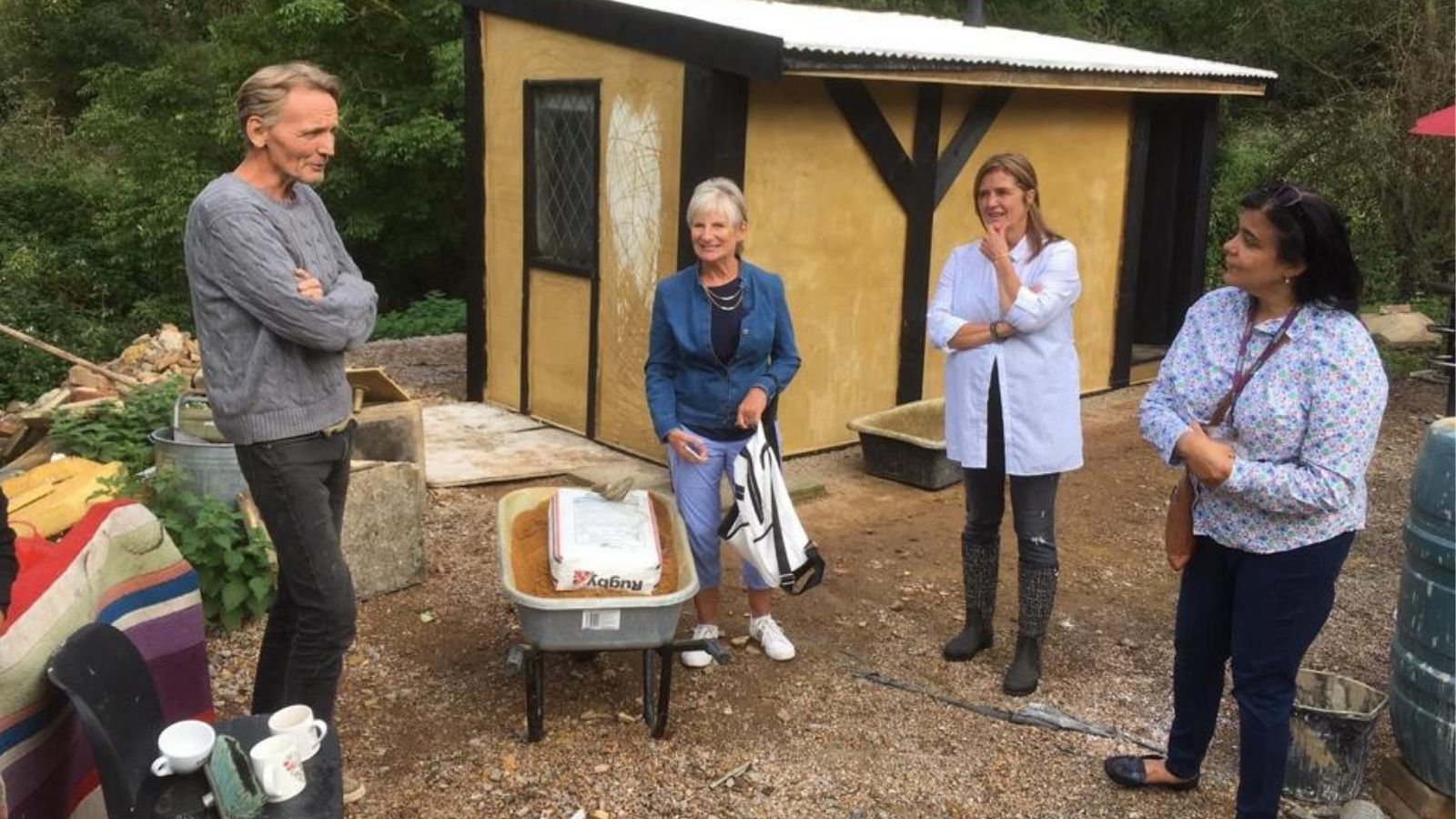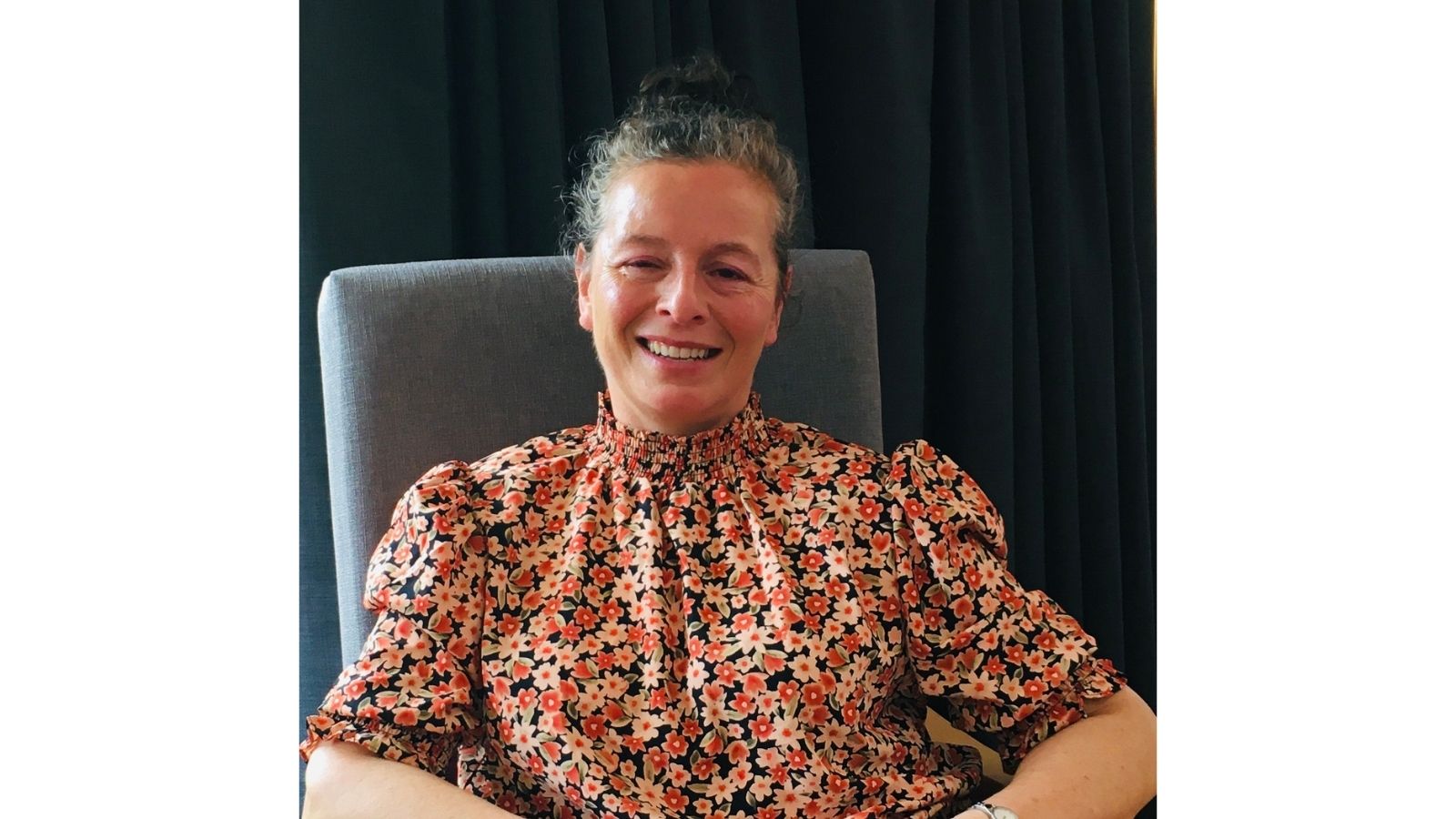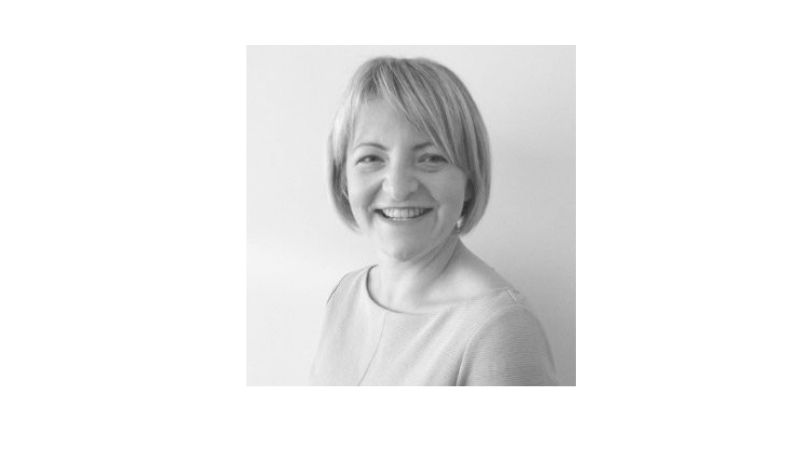Richard Wright, has been a GP for 26 years. He’s the Principal & Clinical Director of North Tandridge Primary Care Network and he’s a lead for Growing Health Together.
PCNs are “groups of GP practices that have come together to work to look after populations of generally between 30 and 50,000,” he explains. “It was found, from different health economies around the world, that looking after a population of that size gives you the optimal level of ability to effect change, and look after your population needs.”
“There are now about 1250 primary care networks across the UK. And ours has six GP practices and covers 48000 residents.”
Growing Health Together builds on that desire to effect change.
Wider determinants of health
“This approach of actually looking at the wider determinants of health, and what it is that gives people wellbeing and makes them function well and feel good, I find really exciting,” he says.
“The joy for me of being the Clinical Director for my primary care network is I have protected time to now go out into the community that I’ve worked and lived in for quarter of a century, and meet all the amazing, wonderful people doing great work that, to be quite honest, I’ve never interacted with before.”
Making links
This approach is making links between the good work that is going on between the voluntary sector, health, and other organisations, which can quite often feel siloed.
“In my area, North Tandridge – it covers Caterham and the surrounding villages – we have a fantastic wellbeing cafe and community centre called The Westway,” says Richard. He is the medical adviser to their board of trustees. “so I’m quite involved in the link-up between health and the voluntary sector, and all of the great community services that are out there.”
The Westway was formerly the Douglas Brunton Centre, when it was run by the district council as primarily a day centre for the elderly population. Run-down and deemed not fit for purpose, a group of residents and councillors got together to save it. Now it’s a registered charity with multiple activities: groups for people with diabetes; retinal screening service; health visitors doing baby weighing; there were a group of older adults who were making quilts and doing Craft and Design work.
“One of our local schools, which is a school for children with additional needs and special needs, had students doing work experience there as well,” says Richard. “We are very lucky to have that as a physical space. And I’m really happy to be involved on the medical side, and trying to bring in an NHS aspect to it.”
These include Care Coordinators, who are linking together care homes and patients with dementia and looking at things that can improve their quality of life.
Richard talks about the Intergenerational Music Makers which facilitates school-age children with musical instruments going into care homes, working with patients with dementia. Backed by researched from Southbank University in London, it has been shown to improve the wellbeing of both groups.
“It went down really well,” says Richard. “We’re trying to make sure that older adults have a fulfilling life even when they’re in a care home environment. It also benefits younger people in terms of confidence and going out making music.”
Health and wellbeing
“It’s part of that whole new way of doing things trying to improve health and wellbeing”, says Richard.
For the first time, they’ve employed a new care coordinator for children and young people. Somebody to support parents and bring together a whole range of services and navigation through the NHS. And there’s a cycling and bike fixing initiative.
“This is the kind of thing that the Growing Health Together agenda has been pulling us towards,” he says. “Doing things involving our residents and asking them directly what their needs are.”
But it’s not been simple.
“Gillian Orrow probably spent 18 months knocking on doors and trying to effect change. She has said there have been times when she asked herself whether it was worth continuing,” says Richard.
Clout
“We are really fortunate because we have the bigger NHS organisation overseeing us – the Integrated Care System Surrey Heartlands. And as a Primary Care Network clinical director, you do have a little bit of clout and I’ve been championing this. Surrey Heartlands have been amazing. They’ve said this is important work and they’ve put resources towards it.”
That’s not to say there hasn’t been pushback, including from external consultants.
“We stressed as a group of clinicians how important Growing Health Together was and how health creation is the way forward. If we carry on doing what we’re doing in the next 5,10, 15, 20 years, and if we don’t actually really push the health creation agenda, then we’re not going anywhere,” he says.
Involve communities
That health creation agenda has to go about things in different ways and involve communities and support their needs.
“We all still need hospitals, we all still need doctors and nurses to help us with our health, but we can create health in other ways.”
As the local vaccination site, The Westway became a focus. At an event to recognise the work done during Covid, attended by the Lord Lieutenant of Surrey and the head of Tandridge District Council, Richard met a lot of his own patients and local volunteers. “They feel much more fulfilled, and therefore, their need to seek help through the Health Services has reduced dramatically.
“That doesn’t mean we’re not still there when people become unwell, because that’s our job. But when people need help with maybe their emotional or psychological wellbeing, there are many other ways we can facilitate that rather than with our traditional methods, which is six sessions of talking to somebody, or some tablets. We need to do things in different ways.”
The bottom line is there aren’t enough GPs in the country. And the health service itself is under pressure. Through work with the Kings Fund, Richard heard from different groups within health, all reflecting the feeling of being siloed and ‘got-at’.
Relationship of trust
“When we built up that relationship of trust, we formulated a good plan,” says Richard
“We’ve shown now that because we’ve got it properly organised, we’ve got reduced hospital admissions from care homes. We can wrap services around people to stop them becoming unwell and ending up in hospital.
“General practice does feel beleaguered, but so does everybody else. We’ve got to work together in as positive a way as we can. Times have been tough, but we can still effect good change.”
Health inequalities live everywhere, says Richard, whose Primary Care Network includes the postcode with statistically the most millionaires in the country. The PCN also includes far less affluent areas.
“It’s finding out who is it that has the greatest need and how can we get involved with those groups so that they get the health and care that they need.”
It’s the age-old Inverse Care Law where those with the greatest need have the least access to services.
“It has been around since I was at medical school,” says Richard. “Some say that certain people are hard to reach – sometimes people call them ‘the easy to ignore’. But that’s where our energies need to lie.”
Buzz
There have already been results. One that sticks out for Richard is a musician who became unwell, which got his spirts down. After a discussion with him about what he enjoyed, it was decided to set up a local singing evening. Beyond expectation, 25 people turned up and it looks like it will turn into a community choir. And it has changed the person’s demeanour completely in a short space of time.
“That’s one person, but the other 25 people were involved in an hour out one evening a week, and singing and doing something they enjoy, and interacting with others,” says Richard.
“What gives me a buzz? It’s those little things that make a difference. There’s no roadmap for how you do it. But, you know, you provide opportunities, you support things, you try and effect change. And you go with your successes.”




